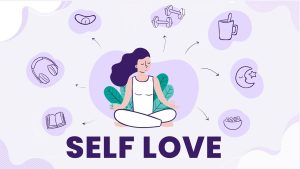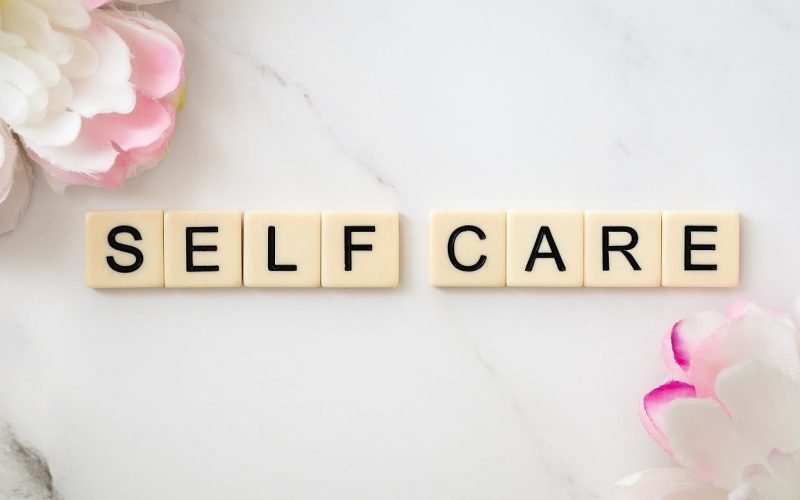In today’s fast-paced world, self-care is essential for maintaining mental health, physical well-being, and overall happiness. However, the idea of investing in self-care can sometimes feel like an expensive luxury. With so many wellness products, spa treatments, and gym memberships on the market, it’s easy to believe that taking care of yourself requires a hefty budget. The truth is, you don’t have to spend a lot of money to practice self-care. There are many simple, affordable practices that you can incorporate into your daily routine without breaking the bank.
In this article, we’ll explore affordable self-care practices that can improve your daily wellness. These tips and habits are designed to fit any budget, ensuring that taking care of yourself remains accessible no matter your financial situation.
What is Self-Care and Why Does It Matter?

Self-care refers to any activity or practice that you engage in to improve your health, happiness, and overall well-being. It includes physical, emotional, and mental actions that allow you to recharge, reduce stress, and promote balance in your life. Practicing self-care regularly is essential for preventing burnout, enhancing productivity, and fostering positive emotions.
In a world where work, family, and other responsibilities often take precedence, self-care can become a forgotten priority. However, prioritizing self-care can help us handle stress better, improve our mood, and maintain our energy levels.
In fact, some of the most effective self-care practices can be done at home with minimal or no cost. The key is being intentional and creating habits that nurture your mind and body without breaking your budget.
1. Start with Simple Movement: Free and Effective Exercise

Regular exercise is one of the most important self-care practices that promotes physical and mental wellness. Physical activity can improve mood, increase energy levels, reduce stress, and help with sleep.
You can incorporate simple movement into your routine, such as:
- Walking: Taking a walk around your neighborhood or local park is an easy, free way to get moving. Aim for 20–30 minutes each day to boost circulation and clear your mind.
- Stretching: Stretching can reduce tension in your muscles, improve flexibility, and promote relaxation. Dedicate just 10–15 minutes each morning or evening to stretch your body.
Tip: If you’re unsure where to start, try a free app like 7-Minute Workout or Nike Training Club for simple, effective exercise routines.
2. Nourish Your Body with Budget-Friendly, Healthy Meals

What we eat plays a significant role in how we feel physically and mentally. In fact, preparing nutritious meals at home can be more cost-effective than buying processed foods or takeout.
Start by focusing on whole, unprocessed foods such as:
- Fruits and vegetables: Frozen produce is often more affordable than fresh, and it’s just as nutritious.
- Whole grains: Brown rice, oats, and quinoa are excellent, low-cost sources of fiber and energy. These grains are versatile and can be incorporated into a variety of meals.
- Legumes: Beans, lentils, and chickpeas are budget-friendly protein sources that can be used in soups, stews, salads, or as side dishes.
- Lean proteins: Eggs, chicken thighs, and canned tuna are affordable sources of protein that can be easily added to meals.
Tip: Plan your meals for the week to avoid impulse purchases. Preparing meals in advance can also save you time and money.
3. Prioritize Sleep: An Inexpensive Yet Vital Self-Care Practice

Sleep is one of the most important aspects of self-care, yet it’s often overlooked. Inadequate sleep can affect your mood, productivity, and overall health. Fortunately, prioritizing sleep hygiene doesn’t require spending money—it’s about creating habits that promote restful sleep.
Here are some simple, budget-friendly tips for better sleep:
- Create a bedtime routine: Wind down with activities like reading, meditation, or listening to calming music.
- Set a consistent sleep schedule: Go to bed and wake up at the same time every day, even on weekends, to regulate your body’s internal clock.
Tip: If you struggle to fall asleep, try deep breathing exercises or progressive muscle relaxation techniques to calm your mind and body.
4. Practice Mindfulness and Meditation

Mindfulness and meditation are powerful tools for managing stress and improving emotional well-being. Fortunately, these practices are free and can be done anywhere. Mindfulness involves paying attention to the present moment without judgment, while meditation helps quiet the mind and reduce stress.
Start by incorporating short, simple mindfulness exercises into your day:
- Deep breathing: Practice inhaling slowly through your nose, holding for a few seconds, and then exhaling through your mouth.
- Body scan: Sit or lie down in a quiet space and mentally scan your body from head to toe, noticing any tension or discomfort. This helps bring awareness to areas where you might be holding stress.
- Guided meditation: Use free apps or YouTube videos to guide you through a short meditation session. Apps like Headspace and Calm offer free sessions to help you get started.
Tip: Consistency is key to feeling the benefits of mindfulness and meditation.
5. Unplug and Disconnect from Digital Devices

In today’s world, technology is always within reach. While technology can improve productivity and connect us with others, excessive screen time can lead to burnout, anxiety, and mental fatigue. Taking regular breaks from screens is a simple yet effective way to recharge and practice self-care.
Here’s how you can incorporate digital detox into your routine:
- Tech-free zones: Designate certain areas of your home as tech-free zones (e.g., your bedroom or dining table). Use these areas for relaxation or quality time with loved ones.
- Social media breaks: Limit your social media usage to a set amount of time each day, or take a break for a week to avoid digital overwhelm.
- Offline activities: Engage in hobbies that don’t involve screens, such as reading, journaling, or outdoor activities.
Tip: Try a social media cleanse for a weekend or a week to help reduce stress and focus on more meaningful connections.
Conclusion
Self-care on a budget is not only possible but essential for maintaining a healthy, balanced life. By incorporating simple practices like healthy eating, exercise, mindful breathing, and unplugging from technology, you can significantly improve your physical and mental well-being. You don’t need expensive wellness products or spa treatments to take care of yourself. Instead, focus on creating small habits that nurture your body, mind, and spirit every day.











